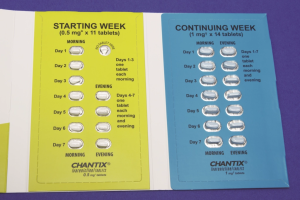Plant-based oils are quickly becoming a favored choice in the realm of nutrition, especially as awareness of their health benefits rises. Recent studies have shown that incorporating these oils—such as olive, canola, and soybean—into your daily meals can significantly reduce the risk of premature death, particularly when substituted for traditional butter. By making dietary swaps for health, you not only enjoy enhanced flavors but also boost your intake of unsaturated fatty acids, which are crucial for heart health. Experts advocate this butter substitute strategy as an essential step toward lowering cancer risk, making it a key consideration in the modern diet. As we learn more about the health advantages of plant-based oils, it becomes evident that simple changes can lead to profound benefits for our well-being.
In the quest for healthier dietary practices, oils derived from plants are gaining traction as versatile alternatives to animal fats. These liquid fats, which include various vegetable and seed oils, are often highlighted for their nutritional advantages and potential to cut down health risks. Research indicates that daily incorporation of these plant-derived oils can foster a healthier lifestyle by enhancing heart health and reducing cancer-related mortality rates. As individuals seek effective dietary swaps, these oils provide an appealing option for those looking to transform their eating habits. Embracing these alternatives can lead not only to improved health outcomes but also a richer culinary experience.
The Health Benefits of Plant-Based Oils
Plant-based oils, derived from nuts, seeds, and vegetables, are renowned for their numerous health benefits. High in unsaturated fatty acids, these oils play a vital role in heart health, helping to lower cholesterol levels and reduce the risk of cardiovascular diseases. The recent study highlighted that substituting butter, which is laden with saturated fats, with oils like olive and canola can significantly decrease mortality rates. By incorporating these oils into your daily diet, you not only make a flavorful choice but also a healthier one.
Further research has consistently shown that the health benefits of plant-based oils extend beyond heart health. These oils are rich in antioxidants and anti-inflammatory properties that may help in reducing cancer risk and promoting overall well-being. Additionally, the omega-3 fatty acids found in certain plant oils can bolster brain health and cognitive function, making them an essential part of a balanced diet. It’s clear that the switch from butter to plant oils is not merely a taste choice; it’s a profound change that impacts one’s long-term health.
Butter Substitute: Why Choose Plant-Based Oils?
Choosing a butter substitute like plant-based oils can lead to healthier dietary habits. As the study revealed, individuals who replaced butter with plant oils daily had a 17 percent lower risk of premature death. This remarkable statistic underscores the need to consider healthier fats in our diets. Instead of relying on butter’s rich taste, experimenting with different plant-based oils can enhance flavor while providing healthful benefits. Oils such as avocado, sunflower, and flaxseed offer a spectrum of flavors and can be used in various culinary applications.
Adopting plant-based oils as butter substitutes can also facilitate dietary swaps that contribute to overall health improvement. For those aiming to reduce saturated fat intake, using oils when cooking or baking can help achieve this goal. These oils not only maintain moisture in baked goods but also deliver essential nutrients. With countless recipes available, transitioning to plant-based oils can be seamless and enjoyable. It’s not just about swapping fats; it’s about paving the way for healthier eating patterns.
Making Dietary Swaps for Health
Implementing dietary swaps is a proactive way to enhance one’s overall health. The study’s findings emphasize that even slight changes, such as replacing butter with plant-based oils, can yield substantial health benefits. Doing such swaps encourages individuals to reflect on their dietary choices, leading to a better understanding of nutrition and its impact on health. The concept of dietary swaps isn’t merely limited to fats; it can extend to various food groups, prompting a shift toward more plant-based options in our diets.
Additionally, making conscious dietary swaps can significantly influence public health. This approach offers a sustainable method to combat chronic diseases that arise from poor nutrition, including obesity, diabetes, and heart disease. By adopting these habits, individuals can contribute not only to their personal health but also to broader community health. As we have seen, small changes can accumulate into substantial benefits over time, making dietary swaps a key strategy for healthier living.
Reducing Cancer Risk with Healthier Fats
One of the critical revelations from recent studies is the link between dietary fats and cancer risk. The analysis showcasing the benefits of plant-based oils found that by replacing butter with these oils, individuals could significantly reduce their likelihood of developing certain cancers. This is crucial information for those looking to proactively manage their health. Unsaturated fats present in oils such as olive and avocado are believed to have protective effects against cancer, making them a smart choice for those concerned about their overall health.
The emphasis on reducing cancer risk through dietary changes supports a growing body of evidence that highlights the importance of nutrition in cancer prevention. By choosing healthier fats and eliminating or minimizing saturated fats found in butter, individuals can make impactful changes to their diets. This approach contributes not only to individual well-being but also to the collective fight against cancer, driving awareness and education on nutrition as essential components of health.
Understanding Unsaturated Fatty Acids
Unsaturated fatty acids are at the core of many discussions surrounding dietary health. They are generally classified into two categories: monounsaturated and polyunsaturated fats, both of which are prevalent in plant-based oils. Unlike saturated fatty acids, which can contribute to heart disease, unsaturated fats help to lower bad cholesterol levels and improve overall heart health. Incorporating oils high in unsaturated fats can therefore be an effective way to promote cardiovascular wellness.
Moreover, the role of unsaturated fatty acids extends beyond heart health. Research suggests that these fats might play a part in reducing inflammation and improving insulin sensitivity. This makes them appealing not only for those looking to manage their weight but also for individuals with diabetes or metabolic syndrome. By embracing plant-based oils and their healthy fats, we support a diet rich in essential nutrients that can contribute to a longer, healthier life.
The Impact of Daily Oil Consumption
Regular consumption of plant-based oils has been shown to have a profound impact on health outcomes. The study discussed found a strong correlation between high daily oil intake and reduced mortality risks, illustrating how pivotal these foods can be in our diets. This is particularly important in today’s context, where many diets still rely heavily on less healthy fats like butter or margarine.
Integrating plant-based oils into daily meals can be a simple but effective change. Adding these oils to salads, marinades, and cooking dishes can make it easy to prioritize health while enjoying food. Additionally, the versatility of plant-based oils allows for creative culinary exploration, promoting not only healthier eating habits but also a more enjoyable cooking experience.
Long-Term Health Benefits of Plant Oils
The long-term health benefits derived from incorporating more plant-based oils are substantial, as noted in the recent study examining dietary trends. The lasting advantages of switching to plant oils from butter go beyond single meal benefits; they foster sustained improvements in health over years. The cumulative effects of this dietary change can lead to improved heart health, reduced cancer risk, and overall enhanced longevity.
For those seeking to improve their diets and health, focusing on integrating plant oils can profoundly alter health trajectories. With the evidence supporting their beneficial effects, individuals have the opportunity to make informed choices that could lead to a longer, healthier life. The advocacy for plant-based oils is a call to action for anyone looking to better their health through diet.
Culinary Uses of Plant-Based Oils
Plant-based oils are incredibly versatile, making them a suitable replacement in various culinary applications. From sautéing to dressing salads, their smooth texture and flavor range significantly enhance recipes. As health advocates promote their use, exploring the different varieties of cooking oils can lead to exciting flavor profiles while also reaping health benefits.
Additionally, plant-based oils can be used in baking as a healthier alternative to butter. The switch can improve the nutritional value of baked goods while still delivering the indulgent taste people love. Utilizing oils such as coconut or olive oil in your recipes can be a simple yet powerful way to make healthy dietary changes without sacrificing flavor or texture.
Future Research Directions on Plant-Based Oils
As research continues to evolve, understanding the impact of dietary choices, particularly regarding plant-based oils, is becoming increasingly vital. Future studies will aim to explore the biological mechanisms behind the health benefits associated with these oils. Investigating how these fats interact with the body can deepen our understanding of their protective properties, potentially leading to clearer guidelines for dietary recommendations.
Additionally, there is a need to broaden the scope of research beyond health professionals, incorporating diverse populations to ascertain how these findings translate across different demographics. Understanding the varied impacts of plant-based oils could offer valuable insights into public health strategies and dietary guidelines. This pursuit will ultimately contribute to enhancing the understanding of nutrition’s role in fostering long-term health benefits.
Frequently Asked Questions
What are the health benefits of plant-based oils compared to butter?
Plant-based oils, such as olive, canola, and soybean oil, offer numerous health benefits compared to butter. They contain unsaturated fatty acids that can lower total, cancer, and cardiovascular disease mortality. A study found that replacing butter with plant-based oils can reduce the risk of premature death by 17%.
How can substituting butter with plant-based oils act as a dietary swap for health?
Substituting butter with plant-based oils serves as an effective dietary swap that promotes better health. This simple change can lead to a significant reduction in the risk of chronic diseases by providing healthier unsaturated fats and reducing the intake of harmful saturated fats found in butter.
What plant-based oils are recommended as a butter substitute?
Recommended plant-based oils that can be used as a butter substitute include olive oil, soybean oil, and canola oil. Each of these oils is rich in unsaturated fatty acids, which contribute positively to heart health and may help reduce cancer risk.
Can using plant-based oils regularly reduce the risk of cancer?
Yes, incorporating plant-based oils into your diet regularly has been associated with a lower risk of cancer. Studies show that higher consumption of these oils correlates with reduced cancer mortality, highlighting their protective health benefits.
What role do unsaturated fatty acids in plant-based oils play in health?
Unsaturated fatty acids in plant-based oils are crucial for cardiovascular health. They help lower bad cholesterol levels and improve overall heart health, which contributes to a reduced risk of premature death and chronic diseases, including cancer.
How significant is the impact of dietary swaps involving plant-based oils on longevity?
The impact of dietary swaps involving plant-based oils is highly significant. Research indicates that replacing just 10 grams of butter with an equivalent amount of plant-based oils daily could lower the risk of mortality by 17%, showcasing the potential of these oils for promoting longevity.
Are there any health risks associated with consuming butter compared to plant-based oils?
Yes, consumption of butter is associated with higher risks of total mortality and cancer, mainly due to its high saturated fat content. In contrast, plant-based oils are linked to lower risks of chronic diseases, making them a healthier choice in moderation.
| Key Point | Details |
|---|---|
| Health Benefits | Replacing butter with plant-based oils can reduce the risk of premature death by 17%, particularly lowering risks associated with cancer and cardiovascular diseases. |
| Study Overview | The study analyzed health data from over 221,000 participants collected over 30 years, assessing the impacts of dietary fats. |
| Sources of Plant-Based Oils | The study highlighted soybean, canola, and olive oils as beneficial substitutes for butter. |
| Study Significance | The findings underscore the potential for dietary changes in public health to lower chronic disease mortality. |
Summary
Plant-based oils offer substantial health benefits, as demonstrated by a new study showing that substituting butter can significantly reduce the risk of premature death. This dietary swap not only promotes longevity but also addresses chronic diseases like cancer and heart disease. Incorporating oils such as soybean, canola, and olive oil into your daily regimen can lead to transformative health outcomes. By making these small yet impactful changes, individuals can enhance their overall well-being and ultimately lead a healthier life.









